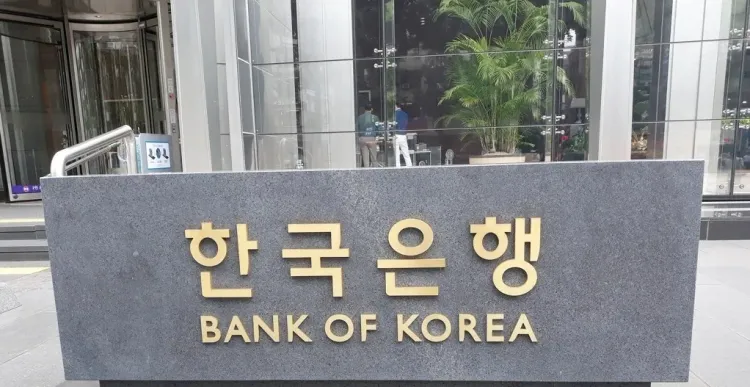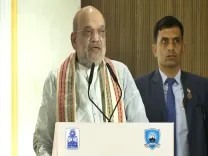BOK Highlights Rising Volatility in U.S. Stock Market Amid Policy Uncertainty

Synopsis
Key Takeaways
- BOK warns of rising U.S. stock market volatility.
- Focus on IT shares as a major driver.
- Potential risks for South Korean market.
- Uncertainties regarding Fed's policy adjustments.
- Impacts of U.S. tariffs and protectionism noted.
Seoul, Jan 31 (NationPress) The South Korean central bank has indicated that there is an increasing level of volatility in the U.S. stock market, particularly driven by IT shares. This situation necessitates careful observation due to its potential effects on the local market.
During a meeting to assess market conditions following the Federal Reserve's decision to maintain the benchmark interest rate on Wednesday (local time) after three consecutive rate cuts, Bank of Korea (BOK) Deputy Governor Ryoo Sang-dai remarked.
“The Fed's decision did not significantly affect the market as it was largely expected, yet volatility in the U.S. stock market has intensified, especially around technology shares. We must closely monitor the possible repercussions on our domestic market,” Ryoo stated.
Earlier this week, U.S. stocks experienced a sharp decline after the Chinese AI startup, DeepSeek, unveiled a more advanced and cost-effective AI model, raising concerns about its potential to challenge U.S. tech giants' dominance.
The benchmark Korea Composite Stock Price Index (KOSPI) registered a decline of 1.06 percent, reaching 2,510.03 as of 11:00 a.m.
The KOSPI had been closed from Monday to Thursday due to an extended Lunar New Year holiday.
“There are still substantial uncertainties regarding the timing and pace of the Fed's rate cuts, the U.S. government's economic policies, and domestic political issues. We will remain alert and monitor developments related to these risk factors,” Ryoo added.
Fed Chair Jerome Powell indicated after the recent decision that there is no need for the Fed to hastily adjust its policy stance, which contrasts with U.S. President Donald Trump’s calls for lower policy rates.
The Fed's latest decision has maintained the gap between the key rates of South Korea and the United States at 1.5 percentage points, with South Korea's rate being lower.
Earlier this month, BOK held its benchmark interest rate steady at 3 percent after two consecutive rate cuts, influenced by the weakening local currency amid political instability and uncertainties from the new Trump administration.
All six board members acknowledged the necessity of keeping the option for further rate cuts open over the next three months to support the economy.
Trump has vowed to implement high tariffs on imported goods and introduce a series of protectionist policies.










